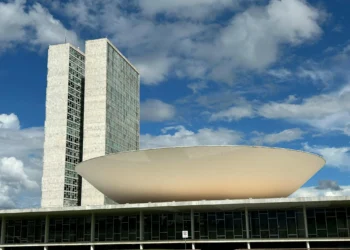Vol. 1 Num. 2
This category will index the articles in the ISSN 2701-4924 of the German National Library
The Cartoon as a political expression in contemporary Brazil
An artistic wing in which the purpose is not to mimic reality, or even to transpose it in different contexts....
Is there a case for a Parliamentary democracy in Brazil?
Looking from the outside, the Brazilian (political) democracy seems to be a fragile instrument which needs to be fixed to...
Majority influence in proportional elections: the case of Brazilian mayors and city councilors
Brazil has the most fragmented party system in the world. In 2018, 30 parties obtained at least one seat in...
The 2020 Brazilian municipal elections as a test for Bolsonaro’s increasing popularity
The first round of the upcoming municipal elections in Brazil will take place on 15th November of this year, with...
Self-regulation on a local credit union
Cooperation is a collective action between two or more people, for a common purpose. Records in cooperation exist throughout the...
In Between Fields of Research: Where Does Cultural Studies Stand?
When I was invited to write about the field of research I am working in, I was overwhelmed by the...
The PT’s Ideational Origins: Avenues for Research
The emergence of the Workers’ Party (Partido dos Trabalhadores, PT) from the suburbs of São Paulo, its institutionalization, and its...
Welcome to BraS-Blog, volume 1 number 2
I remember clearly as a child watching Tintin at night before going to bed. It was my favorite time of...






